Environmentally Friendly Tree growing Small-Scale Agroforestry Model 2024
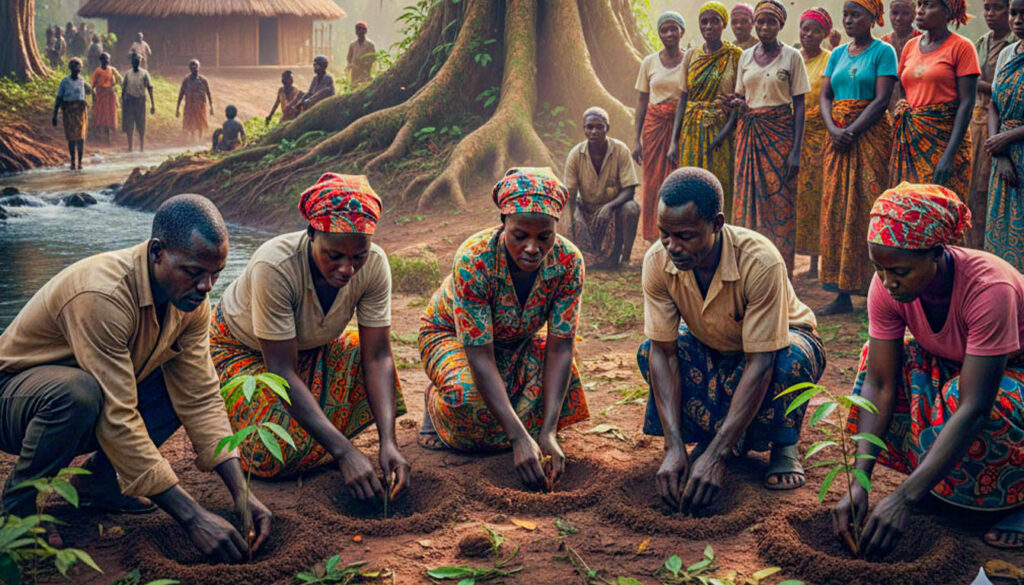
Project summary
In both rural and urban Cameroon, over 90% of households rely on natural forests for wood, fuelwood and wood- derived charcoal for both heating and cooking.
But as the country’s population increases, forests and forest resources continue to dwindle due to overharvesting. This has also been consequential for national wood availability where demand has outpaced supply. Several previously forested areas have been deforested, degraded or converted to other land uses. Land in itself has become a very scarce and rare commodity with consequences for the surrounding environment.
Through tree planting, local farmers can turn little financial and labour investments into income generation, escape from the poverty trap, break the gender and inequality gaps, fight climate change, grow food and improve on family health on a long-term basis.
- Activity: Upgrade and enhance tree cultivation skills through provision of technical and logistic support to local farmers. This activity considers the Sustainable Development Goals (SDGs)
- 1-No
- 2-Zero
- 7-Affordable and Clean
- 8-Decent Work and Economic
- 10-Reduced
- 13-Climate
- 15-Life on
3. Main Objectives
Solve Cameroon’s wood supply by growing trees in small scale agroforestry plantation systems. It is based on the premise that local farmers have unlimited access to individual, family and communal lands on which trees can be planted.
It intends to upgrade and enhance these local tree cultivation skills through provision of technical, logistic, financial and market support to local farmers. This is because small scale forestry serves as a low opportunity cost to involved farmers as a result of its necessitating little expanse of land and intercrop is possible at no additional costs.
Over 100 farmers (67 females and 33 males) have been trained and offered logistical support on fruit trees cultivation in Bamendankwe, Mezam Division in the Northwest Region of Cameroon.
4. Major outcomes
Local farmers assisted in developing environmentally friendly communities.
Local farmers developed sustainable livelihoods and generated income from their farmlands. Slash-and-burn farming method curtailed
Biodiversity is enhanced and nature is gradually restored.
5. Major recommendations
(i) identify high quality and fast-growing fruit tree species (ii) develop seedling nurseries (iii) provide these seedlings, tools and inputs free of charge to local farmers.

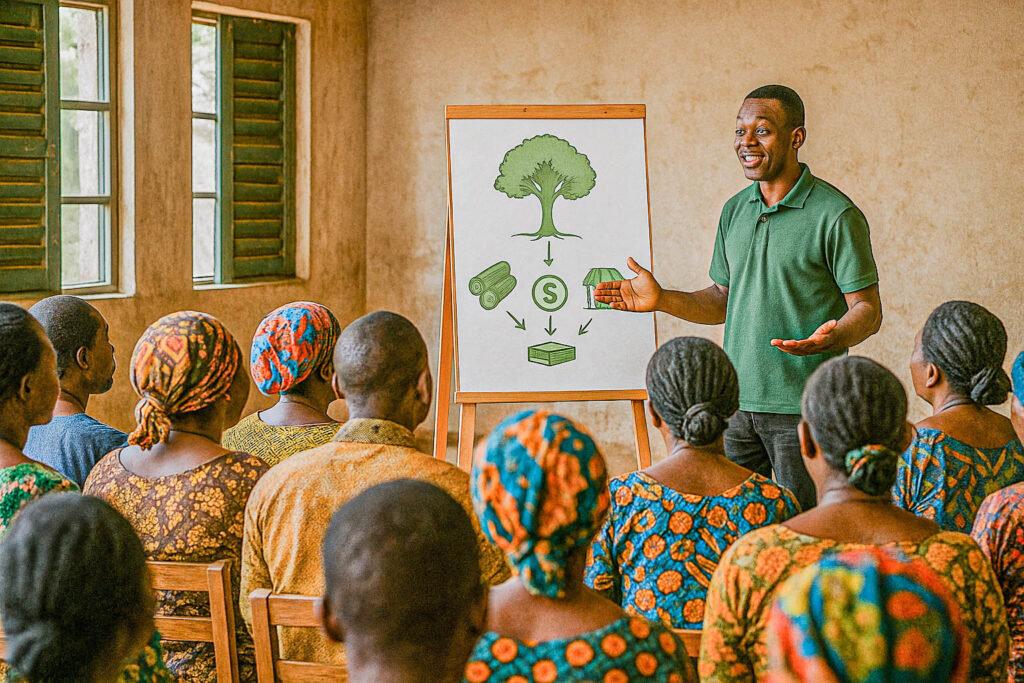
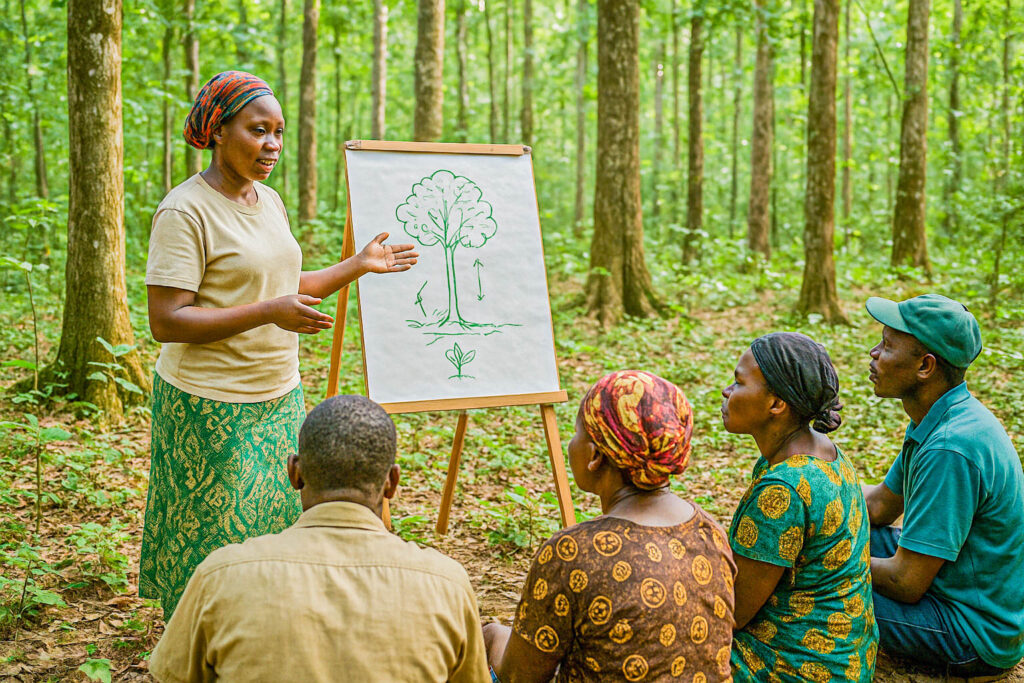
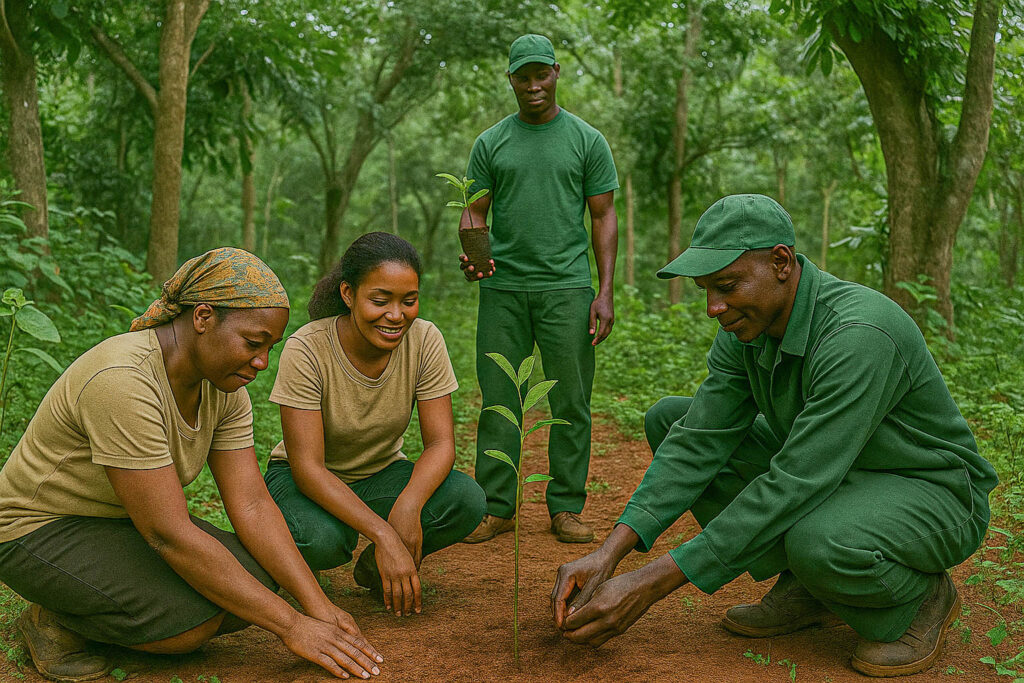
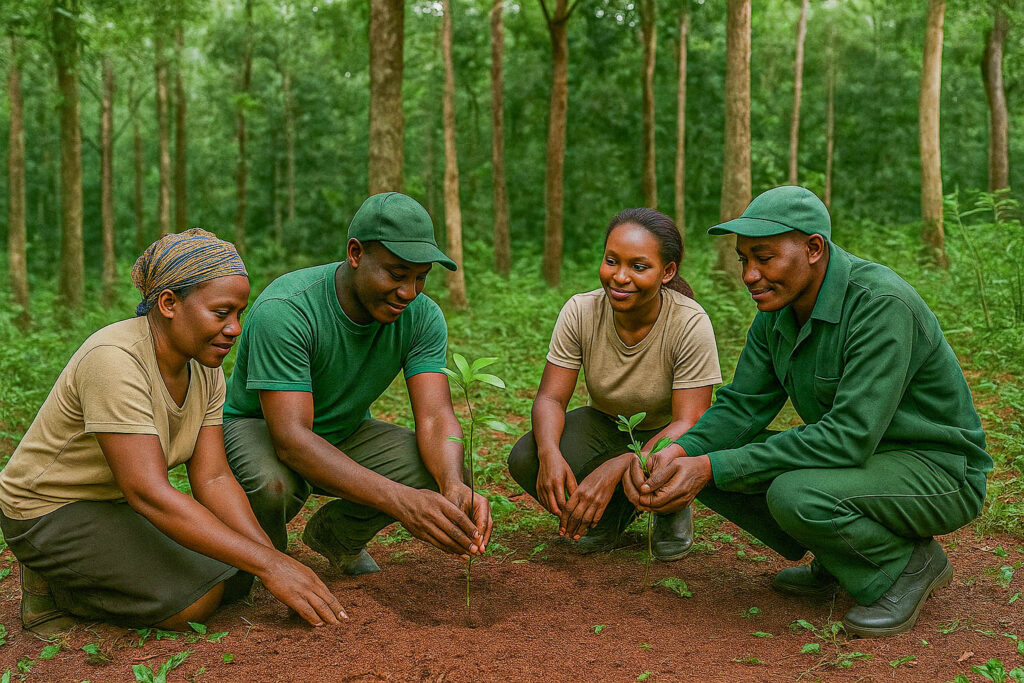
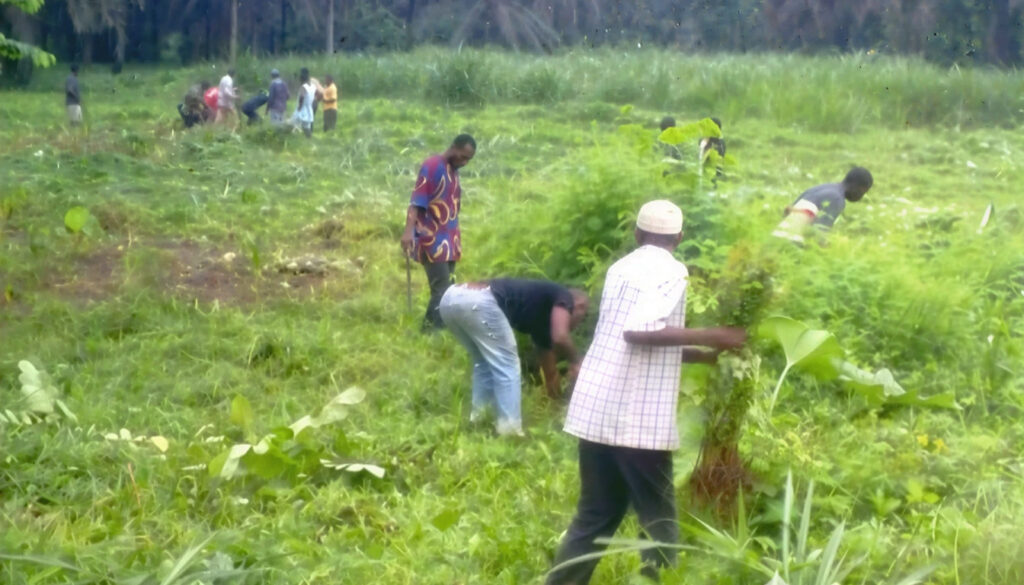
Responses